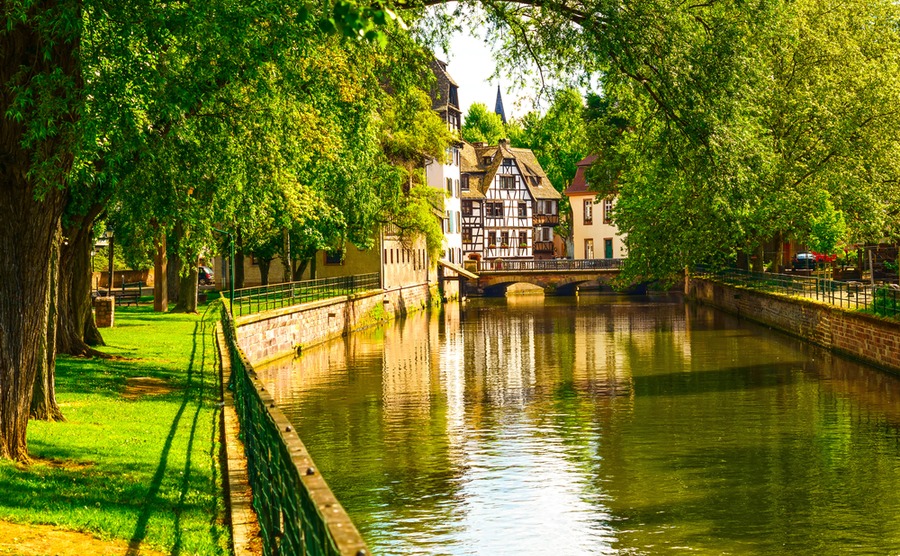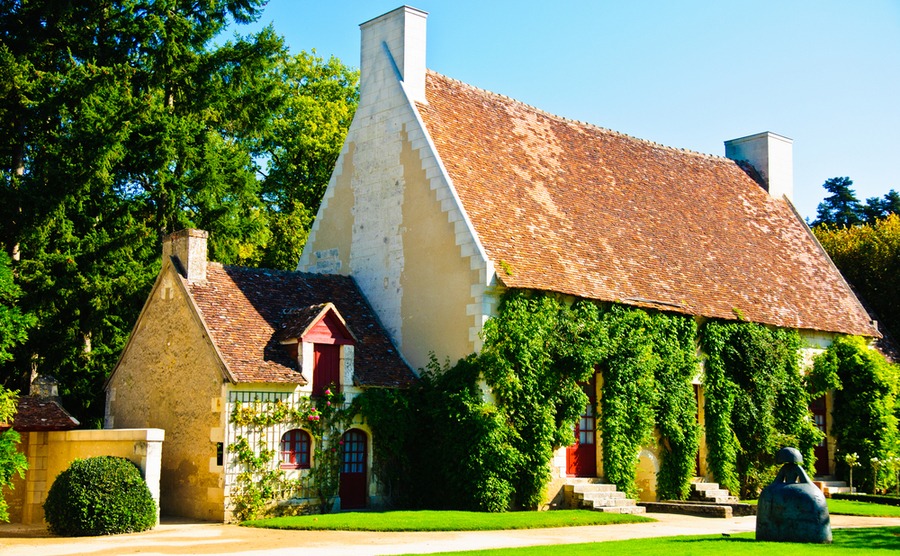Buying a property that will earn its keep as a holiday letting in France is a big part of many British buyer’s ‘French dream’. Some buyers hope to fund their new French lifestyle by buying a home with an annex to convert to a gîte and earn some extra income. How viable is that and what are the opportunities and challenges of running such a business?
With only ten miles separating Great Britain from its nearest neighbour at the closest point, France continues to be extremely popular with tourists, sites like AirBnb are more popular than ever, and in many areas, houses are extremely affordable. Given the proximity to home, buying a property that will earn its keep as a holiday letting in France is a popular option for some, others hope to fund a new lifestyle by buying a home with an annex to convert to a gîte and earn some extra income.
Don’t buy an investment in France without reading the advice in your free France ‘How to Pay for It’ Guide.
So, if you’re considering holiday lettings in France as a money-making venture, what are the most important factors to think about?
The financial side
Buying a property to let out to holidaymakers is more popular than ever. It is possible to generate returns of 5% or more on a rental property, but does this mean you’ll make a profit or simply cover the running expenses involved?

A small holiday let can provide a good second or small first income stream.
A lot depends on the old saying, location, location, location. For a holiday home to generate enough income to cover costs, the purchase price mustn’t be too steep relative to potential earnings, and it must be in a desirable location to attract plenty of bookings at a reasonable nightly rate.
Paris, for example, is extremely popular with tourists, and you should have no problem generating bookings. However, the prices of apartments are very high in desirable, central areas like the Maris, renovation costs are expensive, and in some cases, rentals are limited to 120 days per year. With properties costing an average of around €10,000 per square metre, a reasonably sized one bedroom flat (50m2) will set you back around €500,000. If you’re planning to fund a purchase with borrowings, you’ll need to earn around €1,000 per month to fund the interest on an 80% mortgage of €450,000. Assuming a nightly rate of €150 at 30% occupancy), you will achieve a monthly income of around €1,500, just enough to cover mortgage interest and contribute towards running costs.
Holiday lettings in France’s provincial areas on the other hand are much cheaper to buy, so yields can be much more attractive relative to cost. For a modest €100,000 outlay, your mortgage interest on €80,000 would be around €166 per month. Nightly charges and occupancy rates may be lower, but the yields can still be attractive. If you charged €75 per night, and your property was occupied only 30% of the time, you’d still be earning around €700 per month. That’s a net annual yield of around 9% gross, and a monthly income well in excess of your mortgage interest payment, although you’d have to factor into that amount the costs of upkeep and marketing.
Of course, in both of these examples, your holiday letting in France will be available for you to use for large part of the year, making a buy-to-let an extremely attractive proposition. And if you use the income generated to repay capital as well as interest, after the end of the mortgage period you’ll own your holiday home outright at no cost to you.
FIND properties for sale in France on our property portal.
How to choose the right property for you
Choosing the right kind of holiday letting in France depends on whether you’re looking to achieve maximum income, or whether you also want to use the property for family holidays.
If earning money is your goal, then your best bet is to look at easy to maintain, smaller properties in town, country or coastal locations where tourism is popular and prices relatively low. In order to do your sums, choose an areas of France in which you’d love to own a home, and scout around sites such as AirBnb, using their nightly rates and occupancy levels as a guide. To find out how much properties cost in that area, the French notaries site will give you a very reliable estimate.
If, on the other hand, you have your heart set on a dreamy country cottage in deepest France, surrounded by sunflowers and vineyards, simply letting your home out occasionally to contribute towards running costs is still a viable option. While in some areas, the market for holiday lettings in France is approaching saturation point, by doing your research and investing in a property that is both smart and in a pretty area with plenty to do, you can still achieve a reasonable yield on your investment (and cheap holidays into the bargain!).
In terms of location, the most popular areas for visitors to France are regions like the Luberon, with its picture-perfect villages and iconic lavender fields, Basque country, where surf-lovers flock to towns like Biarritz for its world-famous waves, the Loire Valley for wines, history and jaw-droppingly lovely chateaux, and the seaside resorts of Brittany and Normandy, just a ferry ride away from the UK shores.
Finally, an important factor when choosing a holiday letting in France is the quality of the property and the standard of its furnishings and amenities. Tourists love Ikea-quality furniture and bedding, a clean and well-maintained space, smart bathrooms, air-conditioning if you’re in a warmer spot, and in many areas a pool is not a nice-to-have, it’s an absolute must.
Where to find your property to let in France
Once you’ve narrowed down your preferred area and decided what kind of home is right for your income-generating ambitions, the next step is to scour the market to find the perfect property. You’ll already have realised from your market research what kind of holiday rental property is most desirable (apartment versus a house, the need for a pool, whether renovations are needed or you want a new build), making your search a lot easier.

A local estate agent with experience in helping international buyers will often be your best option.
There a number of excellent ways to find properties for sale in France. The most popular way, at least for foreign buyers, is via an estate agent, either local to the area, or one that specialises in the international market. These agents are used to dealing with British buyers and know what sort of property we like to look for. Have a look on our listings to see thousands of beautiful homes for sale in France, many of which could make fantastic lets (and some of which will already have a business in place).
Furnishing a property to let
As we’ve seen, as the market for holiday lettings in France has exploded, and with it the standard of property that holidaymakers expect. Owners of French holiday lets sometimes complain that travellers expect five-star accommodation at bargain-basement prices, and while there’s some truth in that, it’s still possible to furnish a holiday home on a budget and to a high standard. While Ikea is the gold standard for design and value, there are many other sites like www.maisonsdumonde.com and www.made.com that offer great furniture at reasonable prices.
The market for holiday lettings in France has exploded, and with it the standard of property that holidaymakers expect
When you’re decorating and furnishing your home, do some research first on Instagram or Pinterest to choose a look that’s appealing, and one that will photograph well. Most shoppers for holiday rentals do their research online, and impressive and attractive interior shots are very important for generating interest (and bookings).
Running your holiday let in France
While they aren’t universally popular, sites like Airbnb, booking.com and www.homeaway.com are very good ways to find customers for your holiday rental. Advertising on these sites is usually free, with the booking site taking commissions from guests or owners to pay for the service. These sites will handle payment, manage (and co-ordinate) your calendar, and in some cases arrange for professional photography.
If you’d like to keep more of your cash and handle bookings yourself, then a professional-looking website is a great idea. You can either commission someone to build you a site, or use a DIY service such as www.squarespace.com to create your own bespoke website. Of course, this does mean more work for you, but over time you are likely to attract repeat visitors.
Exchange rates mean that your euro earnings will change value in pounds ever month, unless you plan ahead by securing a fixed exchange rate. Find out how in our partner Smart Currency Exchange’s free guide, The Property Buyer’s Guide to Currency.
If you’re planning on being on-site, renting out part of your property or offering a holiday let adjacent to your home, then managing changeovers is relatively simple and cost effective. If you will be managing your property at a distance, then finding someone reliable and close to the property is the surest way to keep up a good standard, as well as providing work in the local area.
Finally, and in the larger areas, professional hosting services have sprung up to handle everything from meet-and-greet, cleaning and laundry services. One of the more efficient ways to manage guest interactions is via a lock-box, so your holidaymakers can arrive and depart at a time to suit them. You’ll find this method particularly useful if you don’t plan on being at hand throughout the season to deal with guests, or if hospitality is not your forte!
Can you run a holiday let after Brexit?
The UK will leave the EU on 31st January, but there is a transition period that will run until the 31st December. During this period, you can move to France the same as before Brexit, with the same rights as now. If you’re registered as resident before that December deadline, you’ll also keep your rights afterwards.
Once this transition period is up, if the rules for British citizens are the same as for Americans, Australians and other third-country nationals, there are two likely situations.
Firstly, if you’re looking at running a holiday let without actually being resident in France yourself, all you need to do is to register yourself on the RCS (registre du commerce et des sociétés). If you speak French and are confident in handling French administration, you can do it yourself on InfoGreffe, or your lawyer can help you navigate it.
If you’re looking to become resident in France via your business, then you will likely need to apply for a ‘CESEDA L.313-10 2°’ or long-stay visa. This gives you two months in France, upon which you can convert it into a ‘carte de séjour temporaire’, which will give you one year’s residency in France, for a cost of €269. You should make sure it has the mention ‘commerçant, industriel ou artisan’ to show it’s for business purposes. You will normally then be able to renew this each year, subject to approval.
However, if you’re only looking at spending half the year in France and renting for the rest, you don’t need to be resident – so the first, simpler option will work for you. You can simply use a tourist visa to visit France each time, and stay for up to three months at a time.











